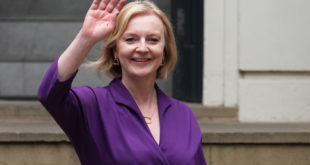Checking if the site connection is secure Enable JavaScript and cookies to continue www.bostonreview.net needs to review the security of your connection before proceeding.
Read More »Advanced Master’s & PhDs
I use Why We Fight in my undergrad international development class [syllabus], an intro-level course in an interdisciplinary major. Students love it, both the ideas and because the anecdotes gave them a sense of how development work and research are conducted. I’ve enjoyed it a lot myself. —Penn State sociologist Brian Thede Graduate students and scholars will benefit from the way that Blattman organizes a vast literature. I would wholeheartedly recommend this as *the* book for those...
Read More »Advanced Master’s & PhDs
Why We Fight fits well as a unit within a graduate seminar on conflict, international relations, economic development, political economy, or comparative politics. 2–3 Week Unit For example, I teach conflict theory and empirics in 3–4 lectures of a longer seminar for economics PhD students called Political Economy of Development, with James Robinson (syllabus). I like to teach a mix of classic theory and very current (often unpublished) papers to give students a feel for both the canon and...
Read More »Undergrad & Master’s
Why We Fight can work as a short unit on conflict within a longer class on economic development, international relations, political economy, comparative politics, or conflict studies. Here are some ideas and resources to do so. 1 week Unit I’d recommend having students engage with Part I of the book only, especially chapters 1–5. This will give them a good overview of the causes of war literature. You could use a selection of the slides below to walk students through the strategic...
Read More »High school
My students love the book. One thing that jumps out is how clearly Blattman writes. For high school students who are encountering a big topic for the first time, clarity is incredibly important. The book really speaks to a wide audience.—Matt Cone, Carrboro High School, Carrboro, North CarolinaI tried to make Why We Fight as simple and accessible and story-driven as possible. I’m eager to hear from high school teachers who would like to use the book, and to help where I can.I met with Matt...
Read More »High school
For high school students who are encountering a complex topic for the first time, clarity is incredibly important. That’s why I tried to make Why We Fight as simple and accessible and story-driven as possible. I plan to develop more high school materials, and would love to hear from teachers. I met with Matt Cone and his class at Carrboro High School in Carrboro, North Carolina, and here were some suggestions from Matt and his students. Ask students to videotape themselves answering basic...
Read More »Center for Strategic & International Studies
[unable to retrieve full-text content]An interview by Erol Yaboke The post Center for Strategic & International Studies appeared first on Chris Blattman.
Read More »If we elected more women would there be less war? Yes but not for the reasons you think
Liz Truss is the United Kingdom's new prime minister—that brings the number of female leaders in the G20 to two. She enters world politics at a tense moment: Russian President Vladimir Putin's invasion of Ukraine looks unlikely to end anytime soon, and tensions in the Taiwan Strait are greater than ever. The risk of a great power war between the West and Russia or China seems greater than any point in 30 years.Maybe what we need is more women in charge, and fewer macho men. Surely that would...
Read More »Predicting and preventing violent crime before it happens
All of us want to feel safe in our daily lives. Yet when we think about crime, our first response is often a blanket approach: find the bad guys, and punish them. But what if there were another way? This week on the show, researchers Sara Heller and Chris Blattman explore how technology and psychology can be used to radically transform our approach to crime. Additional Resources “Social Networks and the Risk of Gunshot Injury,” by Andrew Papachristos, Anthony Braga, David Hureau in the...
Read More »How to cut short the long slog in Ukraine
James Stavridis, the former NATO supreme allied commander for Europe, recently predicted that the Russia-Ukraine conflict would end this year. Some experts, such as Stavridis, expect a stalemate and frozen conflict. Others hope for negotiations to begin. After all, this is what usually happens. War is brutally expensive and exhausting, so most conflicts are brief. Over the last century, the average war was just 100 days long. Unfortunately, some wars last because sustaining the...
Read More » Chris Blattman
Chris Blattman

